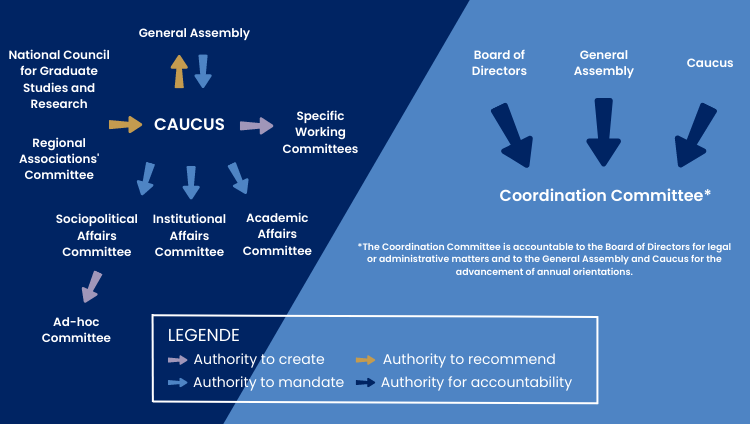National Council for Graduate Studies and Research
This council is composed of all member associations whose members are entirely or partly registered in a graduate program. It is responsible for addressing issues that specifically affect graduate students and university research. It receives its own annual budget and is empowered to carry out its own political advocacy, as long as its positions don’t run contrary to those adopted by the QSU.
Regional Associations' Committee
Because of the specific issues faced by associations in outlying regions, it’s critical that they have a space to collaborate and resources to carry out their actions. The committee is composed of all member associations whose main campus’ head office is located outside the Island of Montréal or Québec City. It addresses issues specific to the regions and receives its own annual budget.
Sociopolitical Affairs Committee
This advisory committee is responsible for managing the work plan and producing content for all dossiers related to civic issues outside higher education, such as the environment, student housing, provincial and federal elections, etc.
Academic Affairs Committee
This advisory committee is responsible for managing the work plan and producing content for all dossiers related to higher education, such as student financial aid, obligatory institutional fees, university funding, internships, etc.
Institutional Affairs Committee
This advisory committee is responsible for managing all institutional dossiers, such as the association’s by-laws and policies. Only QSU member associations may sit on this committee.
Specific Working Committees
Committees working on specific issues may be created by the Caucus. These are always temporary coalitions created to work on a specific issue during a given timeframe that are open to non-member associations. They are a critical way for the Quebec Student Union to work closely alongside civil society and the pitfalls of working in a silo.

